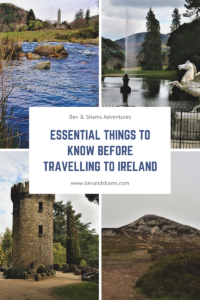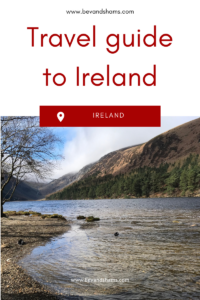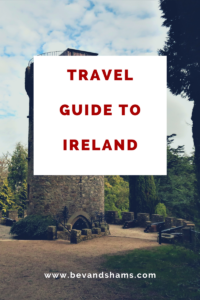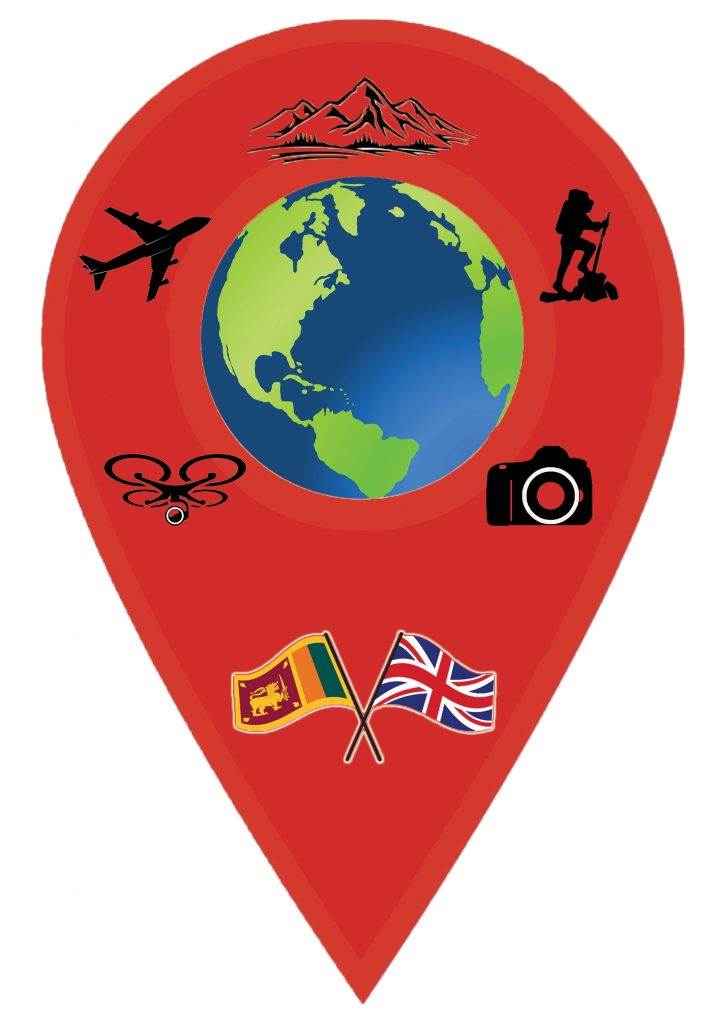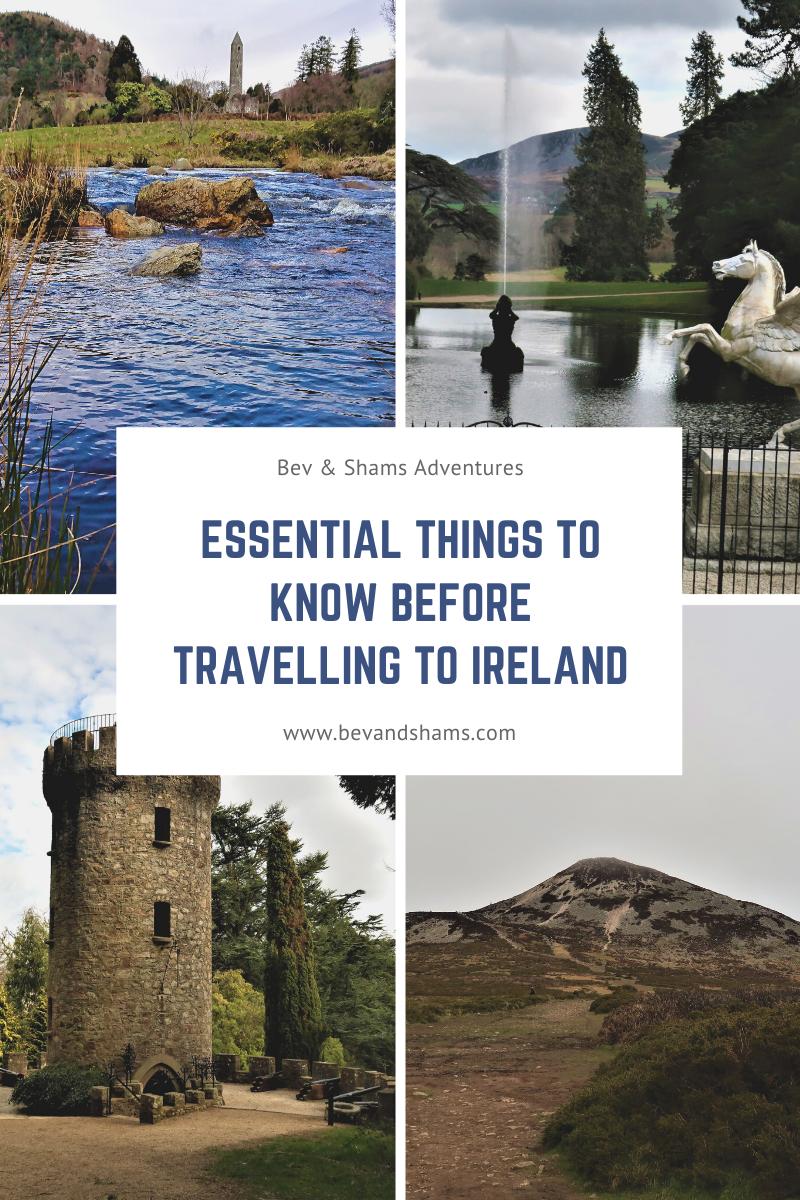The Ultimate Travel Guide to Ireland: Everything You Need to Know
Ireland is a beautiful country, steeped in history and culture. From the friendly and laidback locals to stunning landscape, historic castles dotted around the country, to the capital city of Dublin. There is always something for everyone.
While we loved the bustling streets of Dublin, it was a laidback approach once we headed south to Co. Wicklow for an epic road trip that made our adventure worthwhile.
The diverse landscapes are sure to leave you spellbound, as it did us.
Explore the mystical landscapes of the Ring of Kerry, immerse yourself in the timeless tranquillity of the Giant’s Causeway, or perhaps stay closer to the capital with a road trip around Co. Wicklow. Head to a local pub for a pint of Guinness and listen to traditional Irish music.
Wherever the wind takes you, the Emerald Island will have you coming back for more.
When embarking on any trip, you should always plan and research beforehand. And to ensure you have an adventure you won’t forget, this comprehensive travel guide to Ireland has all the information you need to make the most of your visit, including tips on transportation, accommodation and must-see attractions.
A reliable travel guide will not only introduce you to what Ireland is about but will help you plan and research where you want to go and what you might want to see.
We would highly recommend a road trip, it’s a great way to see different parts of the country and dive into the culture.
Whether you’re a frequent traveller to Ireland, or a first timer, keep this comprehensive travel guide to Ireland, as it has all you need to know.
There may be affiliate links within this article, using these links will not cost you anything extra, but we may earn a small commission. Thank you for your support.
Table of Contents
Facts about Ireland
Capital City – Dublin
Language – English and Irish (Gaeilge)
Comprehensive travel guide to Ireland
We help you plan your holiday to Ireland, in this comprehensive guide.
Plan and research your itinerary
Before you start your trip to Ireland, it’s important to plan and research your itinerary.
There are so many amazing things to see and do in Ireland, and you don’t want to miss out on anything.
Start by deciding how long you’ll be in the country and what areas you want to visit. Some popular destinations include Dublin, Galway, Cork, and the Ring of Kerry.
Once you have a rough idea of your itinerary, you will then need to investigate the visa requirements, the currency and places to stay and how to get around.
Visa requirements
Depending on your nationality you may or may not require a visa to enter Ireland or Northern Ireland.
If you are a European citizen, you will not require a visa to visit. Also, citizens from Australia, New Zealand, USA, Canada and South Africa can visit Ireland without a visa but can’t work.
The maximum stay in the Republic of Ireland, is up to 3 months, while Northern Ireland is 6 months.
If you are unsure and would like more information on visa requirements, then check out the Republic of Irelands Immigration Bureau. For more information on Northern Ireland visas, then head to Nothern Ireland Home Office website.
Currency
Ireland is separated by a border between Republic of Ireland and Northern Ireland. The Republic of Ireland is an independent country, whilst Northern Ireland forms part of the UK (United Kingdom).
You may need to consider purchasing two currencies if you are to cross the border.
The Republic of Ireland’s currency is the (€) Euro, whilst Northern Ireland uses the (£) Pound.
Credit and debit cards are widely accepted in Ireland. Some places in the country may only accept cash, it is a good idea to keep some cash on you. ATMs are available to withdraw cash.
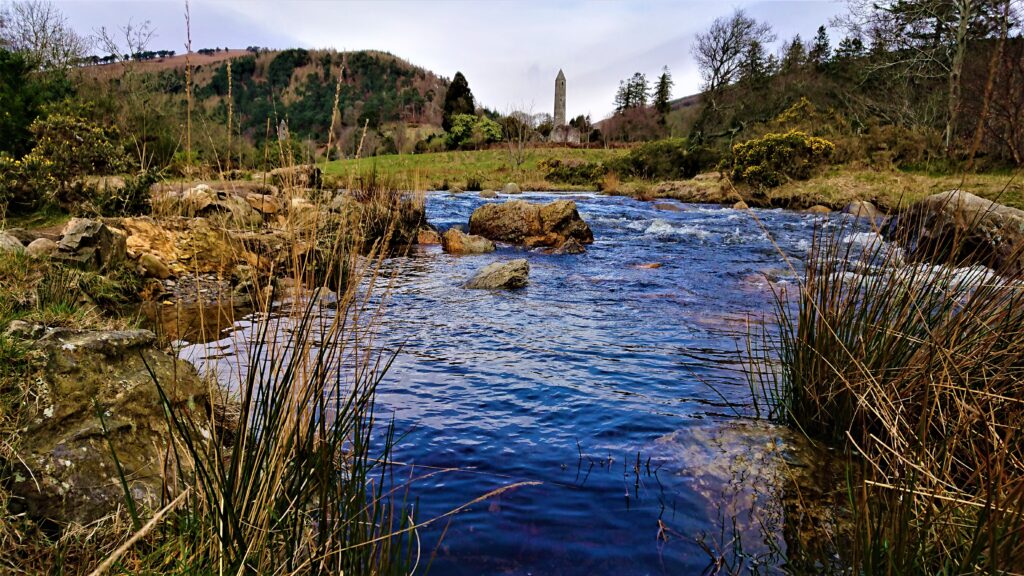
Useful apps and resources to help plan and research your trip to Ireland
For all our budget planning essentials, we use the following tools and apps:
Free Travel planner
We offer you the easiest way to plan your holiday, with this free travel planner. Just download a copy and fill it out as you plan your trip to Ireland
What is included in the FREE travel planner?
Destination information – a section to include notes as you plan
Itinerary – dates of travel, activities, hotel bookings, transportation
Planner – where you’ll eat, day to day activities, places to shop etc
Budget tracker
Flight information – add details of your flight
Packing list – that way you won’t miss a thing
Journal – Write a journal of your highlights of your trip
Expenses tracker – this will come in handy as you travel to keep an eye on your expenses and if you are staying on budget
Notes – an area you can continue to write notes
Grab your FREE travel planner here.
Pinterest is our best friend when it comes to planning a trip to Ireland. And it’s a completely free tool.
If you have an account, you just search your query, such as travel guide to Ireland and it will show results from other experienced travellers like us, who share our knowledge with you, so you can plan your trip with as little stress as possible.
If you don’t have an account, just sign up for free and start searching.
What we love the most about Pinterest, is once we have found the most helpful post on travel guide to Ireland, we can easily pin it to a board, and we can refer to it later.
There is no need to search for that one post again, once you have pinned it, you can come back to it a couple of days or even years later and it will still be pinned to that relevant board.
To organise your dashboard on Pinterest, create a board such as Ireland travel planning, that way, you can come back to all the posts you have saved to help you plan your adventures to Ireland.
You can follow us on Pinterest at Bev & Shams Adventures.
Get your guide
We only started using Get Your Guide within the last year or so and really love using them.
You can book tickets for a wide variety of different activities in the city, day trips, boat trips, tours and more.
This is perfect if you’re looking for something to do, with little hassle, all you do is book the activity through Get Your Guide and off you go.
Here are just a small selection of the bestselling tours or activities you could do in Ireland.
Trail Wallet
This great app downloads onto your phone and is great with keeping to a budget.
We use it all the time when travelling, we just enter our spending onto the app, and it will tell us the total spending.
We can even set a budget, so we can visibly see if we are on target with our budget, if we have saved some money, or even exceeded our budget.
Providing you maintain your spending on Trail Wallet, you can monitor your spending with little hassle and the app is free.
When to travel to Ireland
The best time to visit Ireland, will depend on what you plan to do.
If you are looking for outdoor activities, such as hiking or spending time on the sandy beaches, then the best time to visit is during the summer months of June to August.
But this is the busiest time of year, so expect crowds.
If you are looking to save some money and travel on a budget to Ireland, then we would recommend travelling during the shoulder months of September to November or March to May. It’s a little cheaper and less crowded.
Winter months can be cold and wet, but during December, the country comes to life for the Christmas festive season.
We will always choose to travel through the shoulder months and winter. We love that it’s quieter and cheaper to travel.
If you would like to get into the Ireland spirit, you could visit Ireland during St Patricks day. The country all turns green just for the occasion.
How long to spend in Ireland
We just fell in love with Ireland and can’t wait to go back.
Depending on your plans, you could spend a long weekend in Ireland, or a few months or longer.
Visiting Dublin would be ideal for just a couple of days or a long weekend. While spending a minimum of 2 weeks, would allow you to visit the main hotspots, such as Dublin, the Ring of Kerry, the Giant Causeway, Co. Wicklow and so much more.
And the best way to experience Ireland is with a road trip.
We took a 4-day road trip from Dublin to Co. Wicklow and loved it.
You can read about our 4 days road trip here.
If you have the time, we would recommend spending at least 14 days in Ireland, exploring the top tourist attractions and cities.
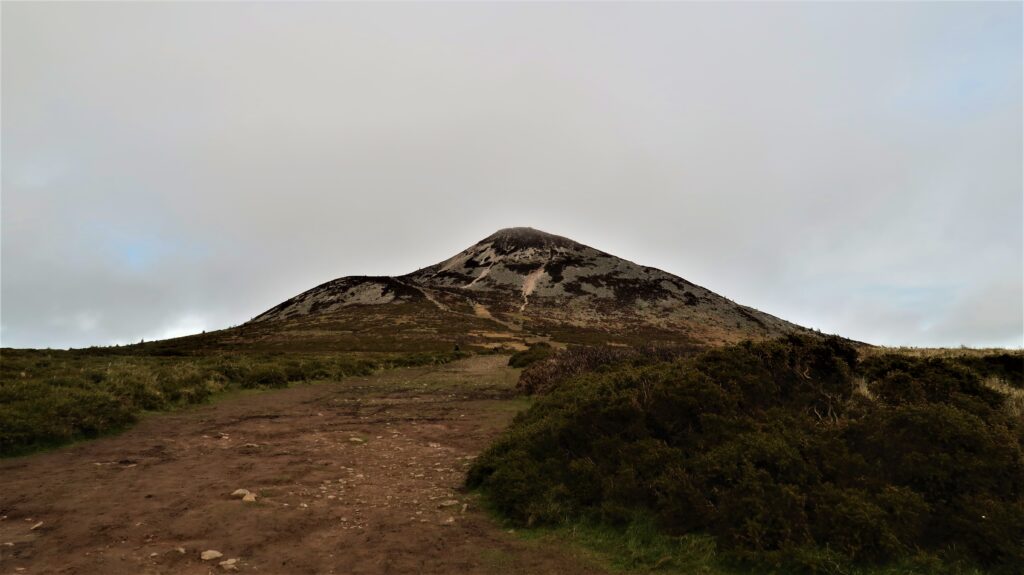
How to get around Ireland
In our opinion, the best way to experience Ireland is with a road trip.
We did a short 4-day road trip around Co. Wicklow, which is about an hour south of Dublin. But due to the rural location, you will need a car, if you choose to do the same road trip as we did.
Alternatively, Ireland has excellent public transport infrastructure to help you get around the country.
Here are your options to arriving and travelling around Ireland.
Airport
If you’re arriving from Europe, budget airlines such as Ryanair, Easy Jet and many more, stop at Dublin, Shannon and Cork.
Tourists travelling from the USA can land at Dublin, Shannon and Cork.
Travelling by plane is quicker, but you can take a ferry from the UK to Ireland.
We flew from London to Dublin, before hiring a vehicle and driving south the Co. Wicklow.
Ferry
Ferry services operate between England and Scotland, with the Republic of Ireland and Northern Ireland, with easy connections to the city.
Ferries depart from Liverpool and arrive in Dublin or Belfast, there’s a few departure points in Wales that will take you to Dublin or Rosslare, which is in the southern regions of Ireland and Scotland offer routes to Northern Ireland.
There are a few routes from Europe, that arrive in Ireland.
This is slower, taking anything from 7 hours to 24 hours journey.
Drive
Driving in Ireland is a unique experience that we would highly recommend.
We do love exploring cities and learning about the history, but the landscape in Ireland is stunning, so why would you want to miss it.
What we loved about driving in Ireland, was the road infrastructure is excellent, the country is easy to navigate and assessable. You could reach places that public transport doesn’t cover.
Hiring a vehicle in Ireland is easy, we used Sixt Car Rental and we picked up our hire vehicle from Dublin Airport.
There are other reputable hire companies that offer different sized hire vehicles, from many branches around the country, or you can pick them up from all major airports.
Driving in Ireland should be added to your travel plans.
Parking
The large cities of Ireland, will have limited parking spaces, Dublin offers a park and ride service.
A few park and ride options are available around the capital. But what is a park and ride service?
Park and ride, prevents large cities and towns from being congested with vehicles, by offering a large car park on the outskirts of the city. A bus or in Dublin’s case, a tram services takes you into the city centre at a very affordable cost.
We stopped at the Red Cow Luas stop and the journey by tram took about 30 minutes, to reach the city centre.
In the rural area, parking is available, some top tourist spots may have limited parking, so to avoid disappointment, it is recommended to arrive early. For example, when we hiked the Great Sugar Loaf, there is free parking at the base, but it is limited. We arrived early and the car park was empty, after the hike, the car park was full. Bare this in mind, when driving in Ireland.
If you do hire a vehicle, plan and research parking and park and ride options for any city exploration.
Train
The most popular way to get around Ireland could be by train. They offer routes to major cities and towns, as well as scenic routes through the countryside.
Trains operate with Irish Rail in the Republic of Ireland and Translink in Northern Ireland.
Check out their website to help you plan how to get around Ireland.
Bus
The cheaper option is to travel by bus. They offer routes to smaller towns and villages, as well as major cities.
Operated by Bus Éireann, you can check out their website for routes.
Taking the bus maybe cheaper for budget travellers, but often the slower route.
The hop and hop off city bus is another great way to get around the city if you’re limited on time.
You can book your hop on and hop off bus tickets here:
Tours
Tours are another popular way to see some of the top spots of Ireland. For example, Cliffs of Moher, Ring of Kerry, Giant Causeway and many more.
There is no planning needed with a tour, you just book your seat and the rest is taken care of.
Here are some of our recommendations for tours in Ireland:
Game of Thrones filming locations
Find the ideal accommodation
There are plenty of options to choose from when it comes to accommodation in Ireland.
Hostels are the most budget friendly option available and they are a great way to meet likeminded travellers like you.
Hostels, offer basic facilities in a private room or dorm room, with shared bathroom facilities. Some rooms have private bathrooms, if you’re not a fan of sharing. Yet private rooms and bathrooms are a little more expensive.
And many are located within the heart of the city or town, some also include a kitchen, so you can make your own food and stay on a budget.
If you are happy to spend a little more money on some creature comforts, then you could stay in a B&B or hotel.
Stay in a castle or a manor house for a unique way of staying in Ireland.
Whatever your budget or needs, you’ll have plenty of choices to stay in Ireland.
We would recommend shopping around for the best deal.
On our road trip, we stayed in a small hotel in the village of Newtown Mount Kennedy. The Parkview hotel, was a lovely hotel in the heart of Co. Wicklow and ideally position for our road trip around the area.
If you are doing the same road trip as us, we would highly recommend staying here.
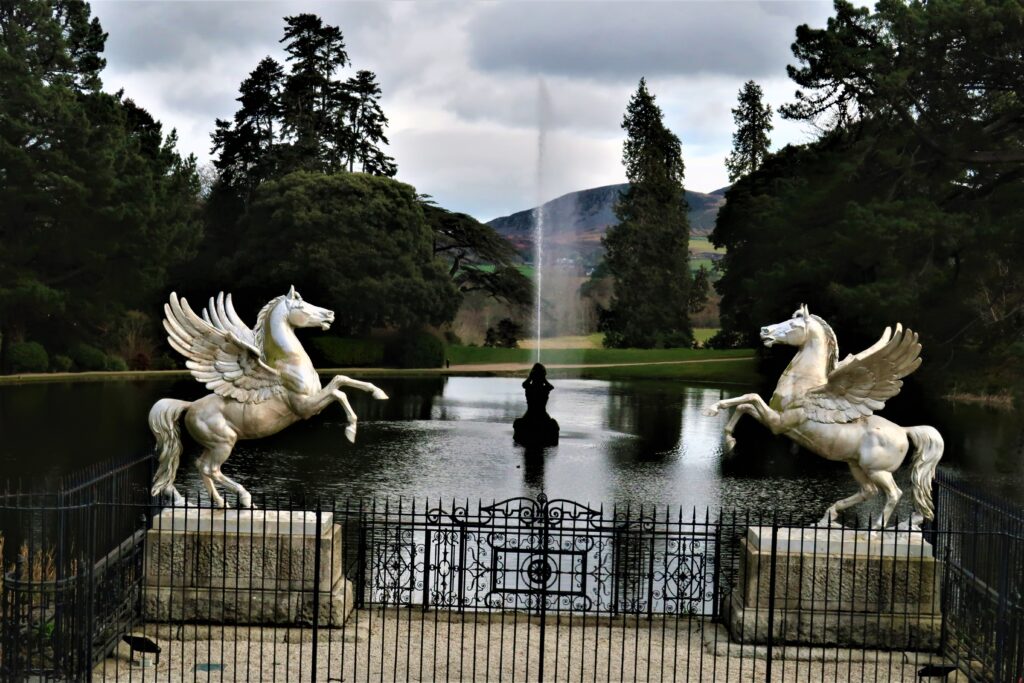
Best things to do in Ireland
Ireland is full of some amazing things to see and do, from the stunning Cliffs of Moher, to a road trip around Co. Wicklow, there is something for everyone.
Co. Wicklow offers charming towns and villages, with picturesque landscape and glorious beaches.
If you prefer the city life, then Dublin or Cork might be the place for you.
With so much to see and do, Ireland is the perfect destination for any traveller.
You can check the logistics of a road trip in Co. Wicklow here.
How to stay safe in Ireland
While Ireland is considered a safe destination, it’s always wise to remain vigilant throughout your journey.
Adopting a few precautions and following some essential guidelines, you can be sure to have an enjoyable experience.
Maintain regular contact with a family member or friend during your trip is essential. Share your itinerary with them, providing peace of mind that someone knows your whereabouts. In the unlikely event that something happened and they don’t hear from you, they can promptly alert the authorities.
Safeguarding your belongings, doing some research before you travel, responsible drinking, will help to keep you safe, while you travel in Ireland.
Remember, the importance of safety while traveling to Ireland cannot be overstated. By employing common sense, adhering to these precautions, and embracing a responsible approach, you can relish your journey while ensuring your well-being remains uncompromised.
Check out this more detailed post on how to stay safe while travelling.
What to pack for Ireland
Packing is fundamental for your trip to Ireland, it’s essential that your strategic in what you pack.
Take into consideration the season in which you plan to visit. In the summer, it’s recommended that you pack comfortable clothing that will keep you cool during the warmer days. You may require some layers for the cooler days or evenings.
If your journey falls during the winter months on the other hand, be sure to pack warm clothing, thermal and underlayers is recommended to shield you from the cold, chilly conditions.
However, packing isn’t limited to just the clothing. Don’t forget to pack the necessary travel documents, photography equipment, to the essentials you’ll need for your trip.
To assist you with packing efficiently, we have curated this extensive list of essential items to pack for your trip to Ireland. Additionally, you can conveniently download a checklist, ensuring that you pack all the right items and never miss a travel essential.
This detailed packing list, will have you embarking on your journey to Ireland fully prepared, ready to immerse yourself in the beauty and wonders this captivating country has to offer.

How to set a budget for a trip to Ireland
Arranging your finances is a crucial step before embarking on a memorable journey to Ireland.
Setting a well-defined budget will help to ensure your responsible with your spending, maintain control over your funds and avoid any surprises upon your return.
The vibrant capital and other major cities in Ireland tend to be on the pricier side, especially when it comes to accommodation.
Consider venturing beyond Dublin’s bustling streets, away from the top tourist spots, to find more favourable low-cost accommodation and places to eat.
Dive into Irelands culture, by exploring the charming towns, countryside and coastal regions and take advantage of the budget friendly alternatives without compromising on the country’s enchanting experiences.
To assist you in gaining a clearer perspective on budget costs and to help you set a budget, we would recommend the following table. This will help you to estimate and allocate your expenses effectively, along with some research, to enable you to make informed decisions during your travels.
Ireland Travel CostsThe breakdown of each area of your budget such as accommodation, transportation, meals, attractions and miscellaneous expenses, this table serves as a practical tool to guide you through your financial planning.
Food and drink
There’s a variety of different cuisines in Ireland, that are warm, hearty and tasty. Here are some of the dishes you’ll find in Ireland.
Full Irish Breakfast
A full Irish breakfast consists of fried bacon, eggs, sausages, tomatoes and mushrooms, accompanied with baked beans, toast and black and white pudding.
Black pudding is made from pigs’ blood traditionally and not to everyone’s taste, whilst white pudding is made from oatmeal, suet, bread, fat, spices and sometimes shredded pork.
This isn’t the healthiest meal with all the fried food, but tastes very nice none the less and best eaten on occasions.
Soda Bread
Most Irish families will have their own recipe for soda bread, that’s been handed down from generation to generation. Some come in sweet variations, healthy options with the use of seeds and oats and some are made with Guinness. Now the latter sounds tasty.
Irish Stew
During cold winters a good warming stew can’t go amiss. Made from Potato which is Ireland staple food, mutton and onions. Some may include carrot and pearl barley.
Boiled bacon and cabbage
We have to say, this doesn’t sound all that exciting, but can be found on many tables in Ireland. As in the name, it is made from boiled bacon, boiled cabbage and boiled potato.
Irish coffee
You either love coffee or hate it, but this is no ordinary coffee, this is Irish coffee. Made with Irish whiskey, topped with whipped cream, sounds yum, well you’ll want to get your lips around this one.
Guinness
We can’t possibly leave off alcohol from this great list of Irish food and drinks. This is the great stuff and best drank in Ireland. We have tried Guinness back home in the UK and it really does not taste as good as having it in Ireland.
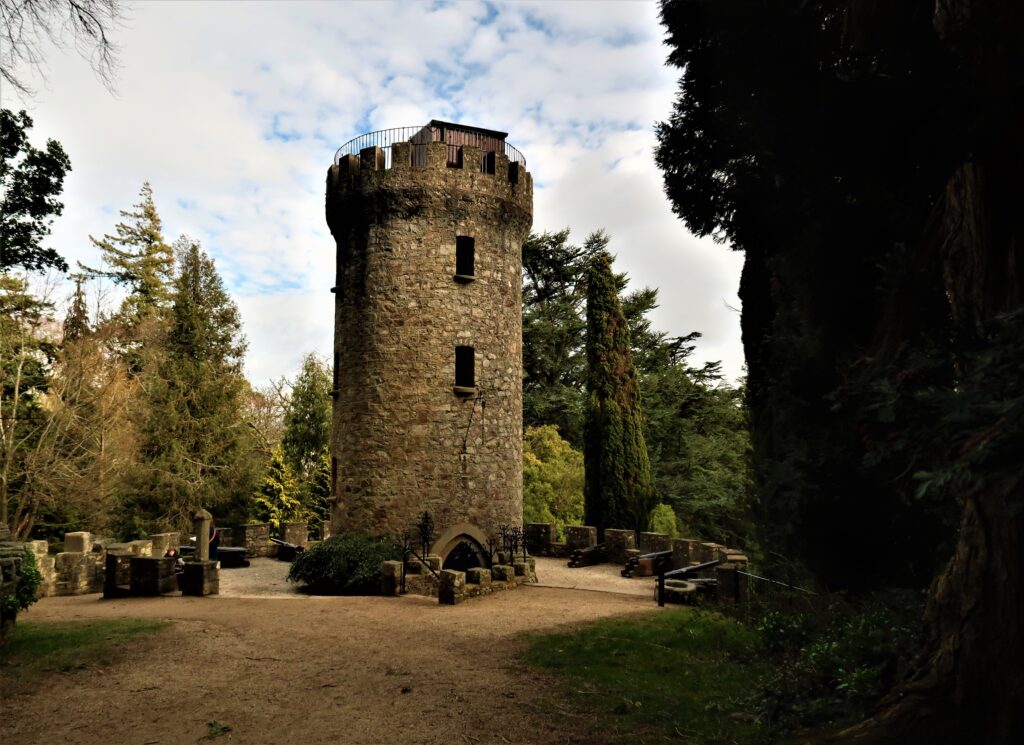
Conclusion
Embarking on a journey to this beautiful country is well worth it. We simply fell in love with the lovely and friendly people, the landscape and the historic buildings that dot around the country.
Explore the top tourist spots of the Giant Causeway, Cliffs of Moher, Dublin city, to escaping to the country for a laidback road trip around Co. Wicklow.
With this comprehensive travel guide to Ireland at your fingertips, you’ll be able to plan your perfect Irish Adventure. From tips on how to stay safe while travelling, setting a budget and our recommendations on where to go in Ireland, this guide has it covered.
Start planning your Ireland trip today and embark on a journey filled with breathtaking sights and unforgettable experiences. Whether you want to hit the busy streets of Dublin, Cork or Belfast, to escaping the hum drum with a relaxed road trip to beautiful landscapes, Ireland offers you endless opportunities.
The adventures await, so let’s begin the journey as Ireland open’s its arms.
